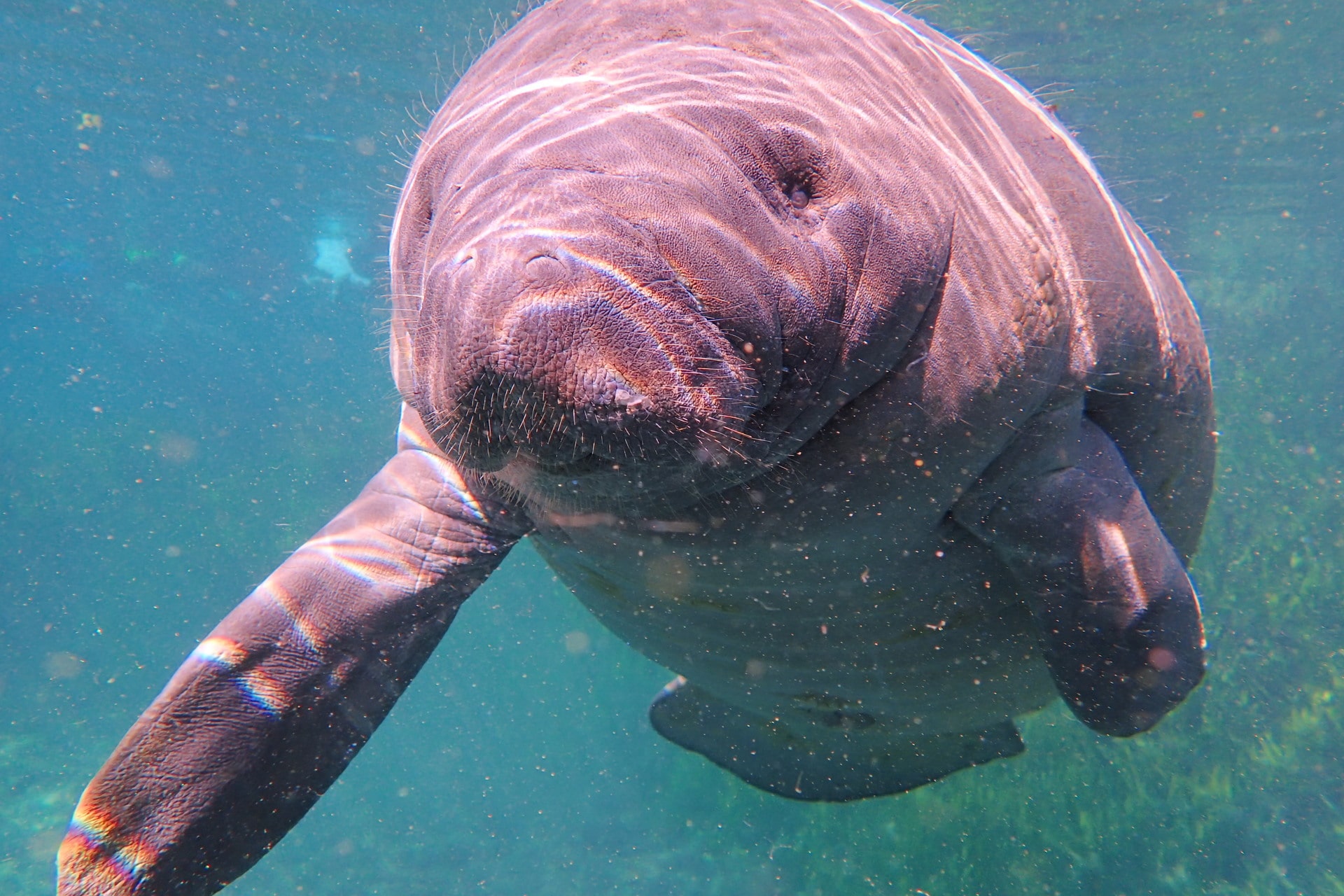The greatest threat to the planet is the thought that someone else will save it. This was the mindset of a few dedicated citizens and business professionals on the Nature Coast who decided enough was enough!! They set their sights on Crystal River…
They were concerned for the health of a major Eco System in Citrus County, and joined forces to make a change! The whole world needs to know about it…. so keep reading!
They called themselves “Save Crystal River.” Short, sweet, and straight to the point. Their goal was to save Crystal River, and that is exactly what they did.
They set their sights on Kings Bay, aka the Crystal River National Wildlife refuge. An invasive algea had choked out all the healthy vegetation and left the bay desolate of marine life.
Why is seagrass important?
Aquatic vegetation, specifically seagrass, is extremely important to the health of our ecosystem.
Where seagrass grows, it filters the water to help with its clarity. Seagrass beds also act as a carpet on the the sandy bottom. Grassbeds stabilize the ground, holding loose particles in place too!
Seagrass is a critical factor in the clarity of the water, but more important to the marine life that relies on seagrass beds to survive.
In healthy seagrass meadows you will see a plethora of marine life thriving! From smaller fish to bigger fish and dolphins, from small crustaceans to manatees!
How do we know this, you ask?! Well, it is because we have seen it with our own eyes!!
The past is the past…
As locals to the area, and tour operators in Kings bay, we have seen the impact that the Save Crystal River Kings Bay Restoration Project has made in our area.
We have operated manatee swim tours daily for the duration of the restoration project. Although manatee season runs from the middle of November to the end of March, we swim with a resident population of manatees year round.
Years ago, we would always suggest taking a manatee swim tour during manatee season, since manatee huddle in the clearest waters of the springs for warmth in the winter. Years ago, this was when manatee would actually be visible beneath the surface of the water.
During the summer months, before the restoration project, we would swim in dark dirty water. The bottom was algae ridden and just plain muck… YUCK!
Manatee tours in the summer months used to be more of a safari due to the limited number of animals in Kings Bay, and there were often times that we didn’t find a single manatee!! Talk about disappointing!!
Since Save Crystal River actually saved Crystal River, the tables have turned!! The summer months give us some of the BEST manatee tour conditions that we experience all year!! Some even better than those during “manatee season.” For the first time EVER we are able to encourage people to come swim with manatees in the summer. This has made a HUGE impact on our tours, as we can redirect some traffic from the busy manatee season to the less crowded summer.
The Difference was Night and Day!
When the vegetation is in full bloom it is breathtaking. The bottom is covered with full lush seagrass beds and the water clarity is at its absolute best!
When we snorkel with the manatees in the summer, we get lost in the grass beds counting the different species of fish big and small, and even blue crabs and turtles too! We are even seeing other various aquatic vegetation thriving symbiotically with the eelgrass. It’s truly a spectacular sight.
Our residential population of manatee LOVES this project too! Our summer population of manatee over the years has gotten larger and healthier. We now see more manatee in the summer than we ever have, and it is mainly because they have a fully stocked “all you can eat buffet” that they can graze at their leisure.
Not to mention, we can actually SEE them. Our manatee thrive in the areas that are most pristine! These conditions are not only good for our customers but for the manatee as well. In clear waterways, manatee are spotted easily and avoided by boaters! Win Win!
Crystal River is given hope for a better tomorrow…
The Kings Bay Restoration project is far from over but has been a huge success so far.
During the pilot project alone in 2011, a little over 6000 plants were planted among about three acres. (We will talk about how in another article, because it deserves one of its own.) That number has grown exponentially to over 5 million plants to date.. and it continues to grow! The individual plants, as they mature, grow together and form acres upon acres of seagrass meadows.
The seagrass meadows have replaced tens of thousands of tons of muck and inspired so many!


